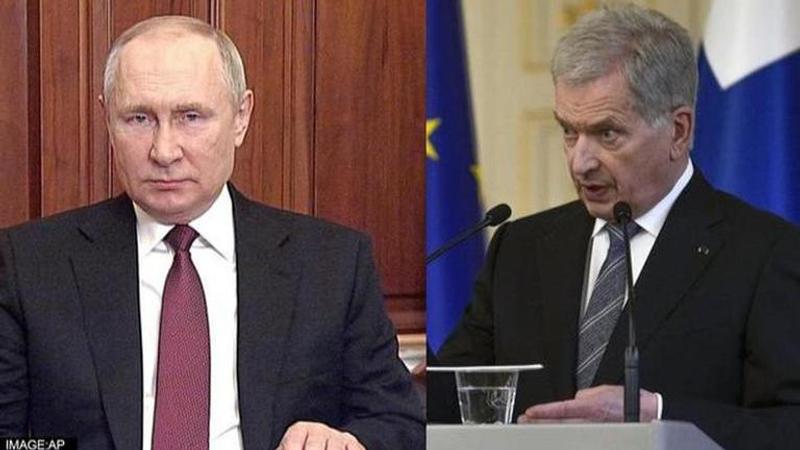Published 13:46 IST, May 14th 2022
Russia warns Finland & Sweden to face military action if moving ahead with NATO decision
Russia's Foreign Ministry warned that Moscow "will be forced to take retaliatory steps of military-technical and other characteristics if Finland joins NATO.

As the war rages on in Eastern Europe with no signs of cessation of hostilities anywhere in sight, the prospects of Sweden and Finland joining the NATO military alliance have been doing the rounds. Reacting to the speculations, Kremlin warned the countries to face "military-technical" repercussions. The major development from the Russian side came a day after Finland's President and Prime Minister announced that the Nordic country would apply right away for membership in NATO. While retreating from the stand, Finnish President Sauli Niinisto said, "You (Russia) caused this. Look in the mirror."
Responding to his remarks, Russia's Foreign Ministry warned that Moscow "will be forced to take retaliatory steps of military-technical and other characteristics in order to counter the emerging threats to its national security." While Sweden Prime Minister Magdalena Andersson said that the country needs to be prepared for all kinds of action from Moscow and added the Russia-Ukraine war changed the security requirement. Meanwhile, Kremlin cautioned both countries that Moscow would be forced to restore military balance by strengthening its defences in the Baltic region. According to Kremlin, it could deploy nuclear weapons, "if the two nations decide to join the US-led military alliance."
What is NATO?
NATO is an intergovernmental military alliance between 27 European countries, two North American countries, and one Eurasian country. The organisation implements the North Atlantic Treaty that was signed on April 4, 1949. In 1949, there were 12 founding members of the Alliance: Belgium, Canada, Denmark, France, Iceland, Italy, Luxembourg, the Netherlands, Norway, Portugal, the United Kingdom and the United States. The other member countries are: Greece and Turkey (1952), Germany (1955), Spain (1982), the Czech Republic, Hungary and Poland (1999), Bulgaria, Estonia, Latvia, Lithuania, Romania, Slovakia and Slovenia (2004), Albania and Croatia (2009), Montenegro (2017) and North Macedonia (2020).
According to NATO, it is committed to the peaceful resolution of disputes. If diplomatic efforts fail, it has the military power to undertake crisis-management operations. These are carried out under the collective defence clause of NATO's founding treaty - Article 5 of the Washington Treaty or under a United Nations mandate, alone or in cooperation with other countries and international organisations.
Image: AP
Updated 13:46 IST, May 14th 2022




